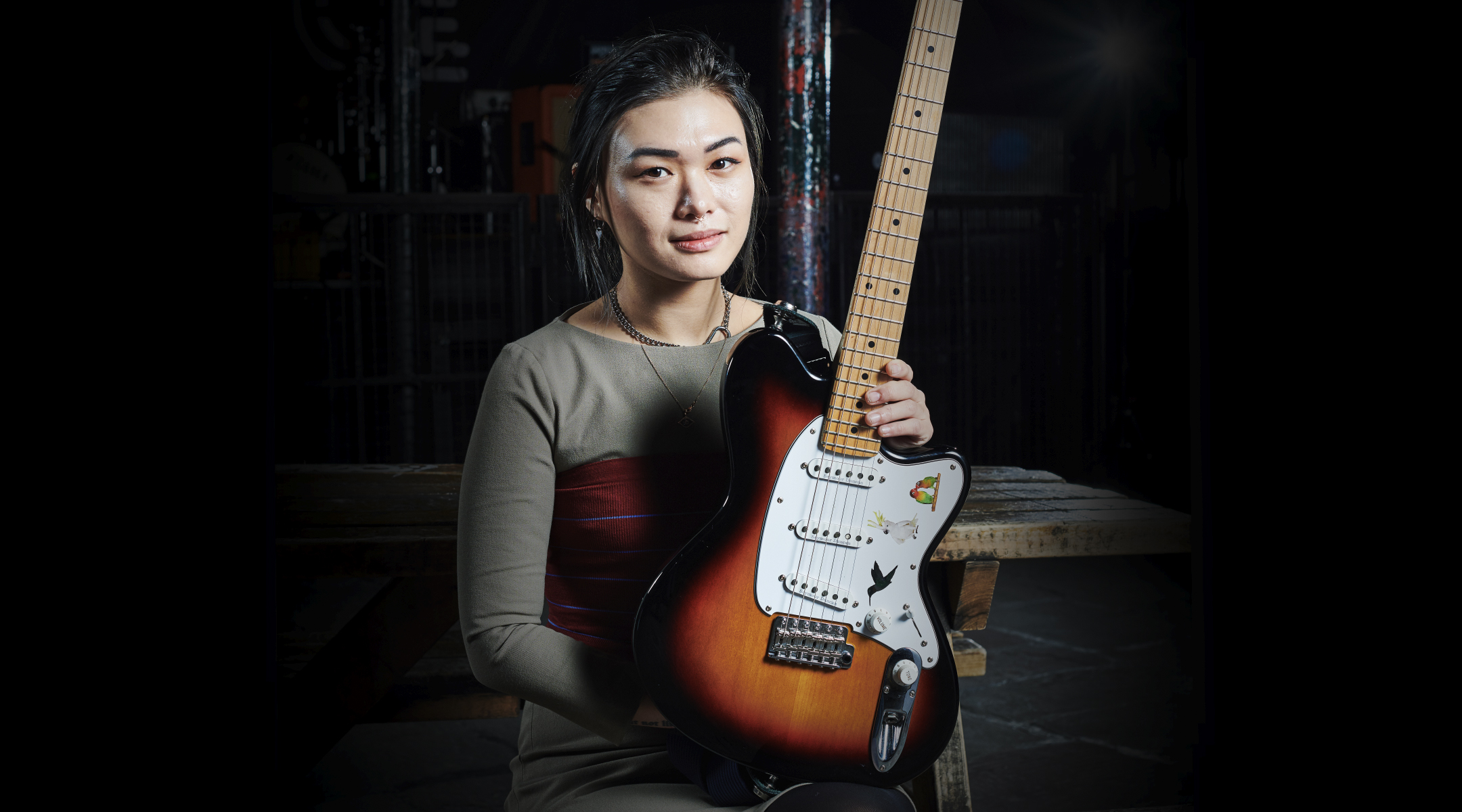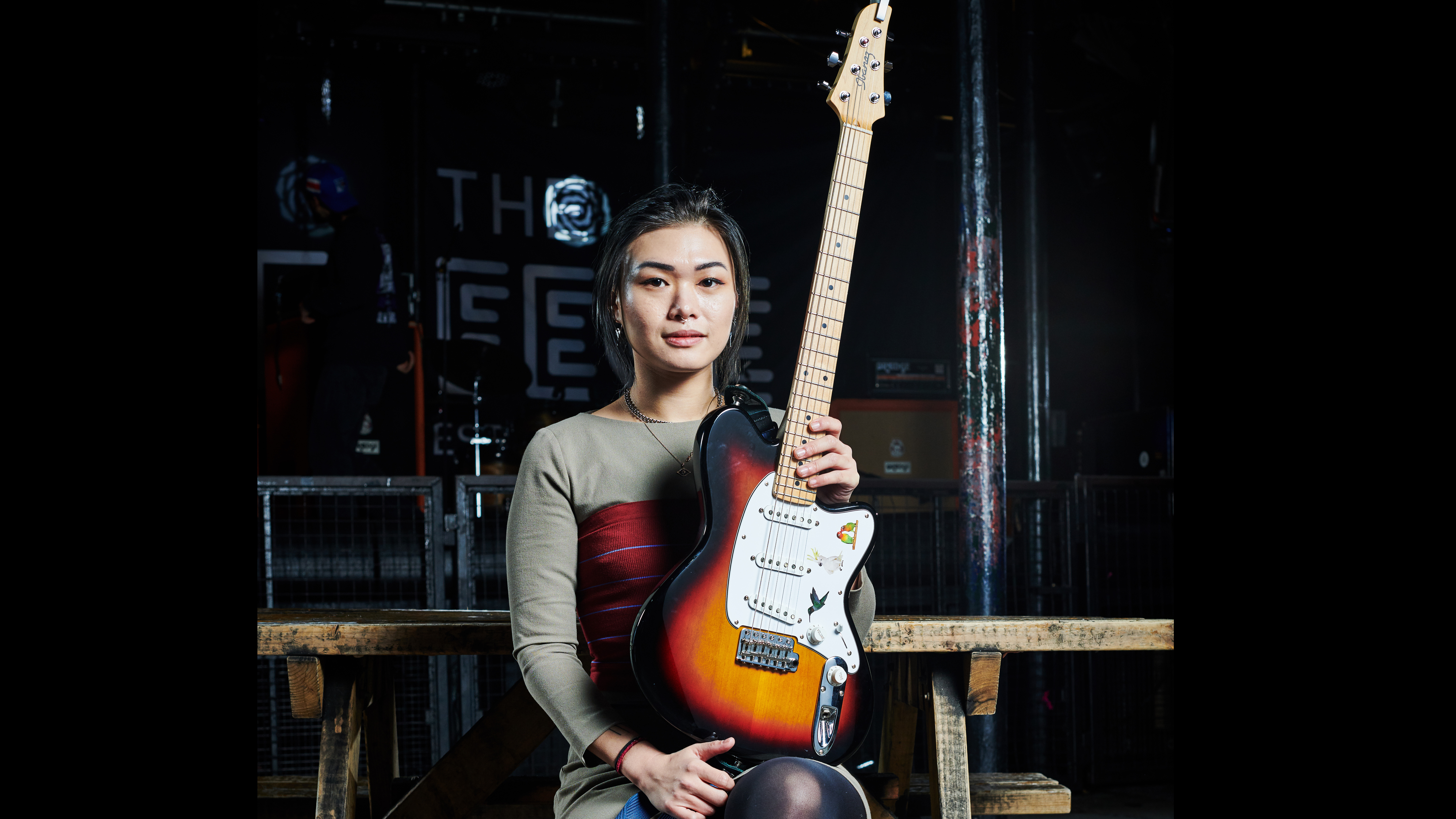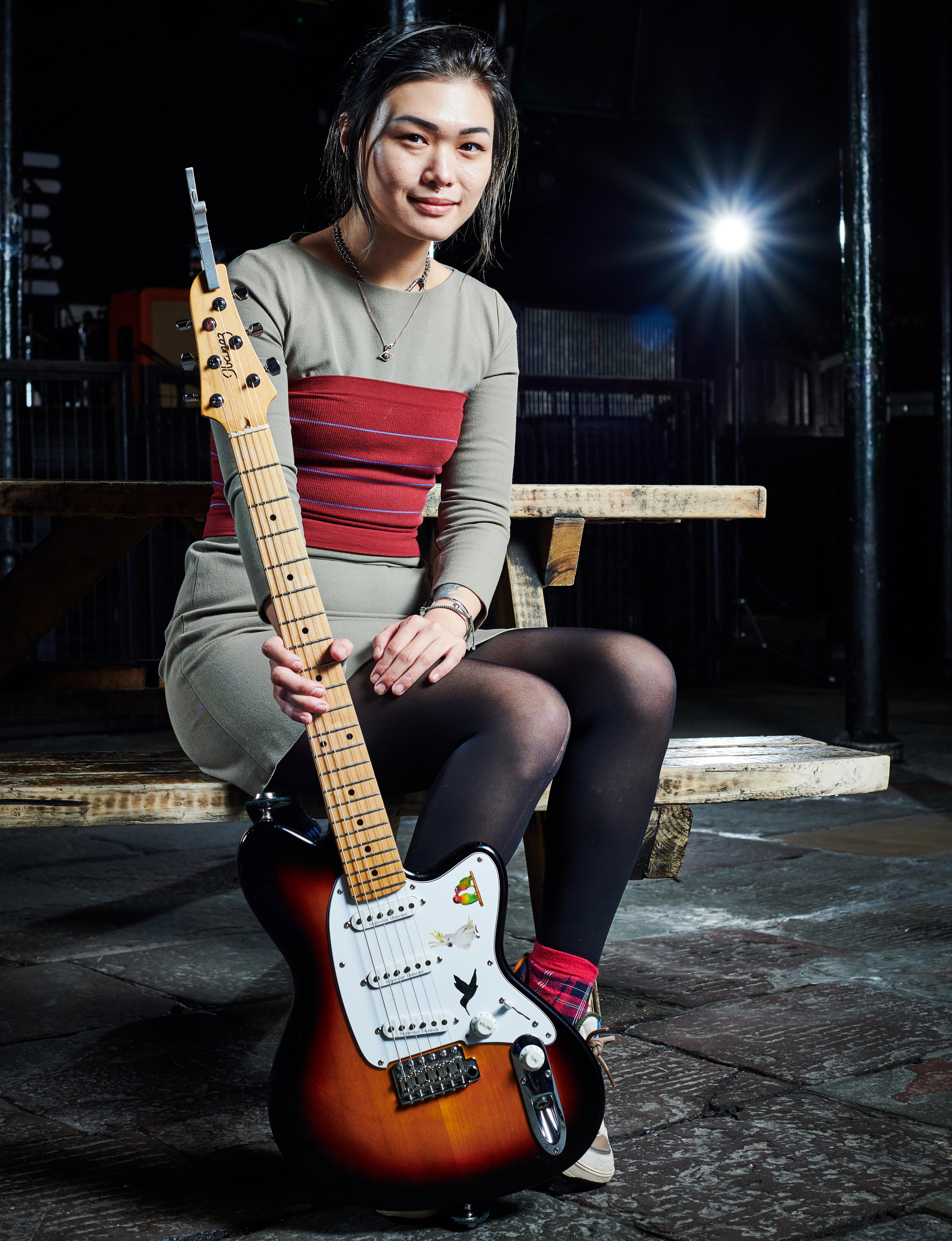
There are no rules with guitar – and players who are willing to step outside the boundaries of convention can often reap rich creative rewards. Yvette Young has proved the point in her work with three-piece instrumental band Covet and her solo work.
Moving from piano to guitar has given her compositions a multi-layered, otherworldly sound as she expands the boundaries of fluid two-handed tapping and unorthodox voicings in alternate tunings.
She’s a fascinating player with an open mind and some inspiring insights into how players can break out of creative ruts, as we’ll find out…
You were pianist first, have you found it freeing to approach the guitar with a different mindset?
“I’m really grateful that I approached it that way. I taught myself everything. I just wanted to sound as full as I could as just one player, because I didn’t have a band yet. So I achieved that by tapping and doing all this stuff.
"I feel grateful to have come from my piano background because it allows me to deal with polyphony. I can write stuff that has a lot of polyphony in it and figure out how to play it on guitar, to translate that vision.
“I write with my ear, so I’m not really in a box in terms of chord shapes. And I don’t use [traditional] shapes at all, which freaks a lot of people out! I have a million different tunings I work in too so I didn’t really put in the time to learn every shape in every tuning, that would be ridiculous.
Get the MusicRadar Newsletter
Want all the hottest music and gear news, reviews, deals, features and more, direct to your inbox? Sign up here.

Meet the six-string anarchists obliterating the guitar rulebook
"So what I do is sing all my lead parts and figure that out, then hear the harmonies and sing them, then figure those out too. It’s a really slow process but I’m practicing while I’m writing. So at the end of my writing session I already know how to play everything."
“Another thing that’s cool is I don’t compare myself to anyone. It’s hard when you’re on an instrument and you learn the traditional way and compare [yourself] to the people around you. I’m doing this different thing.
"I jokingly call myself a hack because I figure everything out by ear and I don’t really have a formula I follow and there’s not really a logic to what I’m doing. It’s really based off of feel and my ear. I feel that, because I’m like a weirdo in that sense, it’s easy for me not to compare myself to people and just continue doing my thing and strengthen whatever voice I have.”
It’s freeing
“It is. A lot of students I have, I keep on saying the same thing, ‘Try varying up your tuning, pull your comfort away and try to use your ear to play something you actually want to play instead of what you’re comfortable and confident playing already.’ I’m never confident playing!”
So you’re a guitar teacher too?
“Actually I was mainly an art teacher and then I started doing lessons on tour.”

Use your voice, it’s your most comfortable, fluid instrument because you don’t have to translate it through anything
Has seeing the instrument through your students’ eyes changed the way you see guitar?
“The most common lesson I give is songwriting. People come to me and they say, ‘I feel I’m stuck on this part’ and that’s my favourite kind of lesson because I get to hear them play what they created and I’m just like, ‘Well sing what comes next’ and they say, ‘Sing?!’ Use your voice, it’s your most comfortable, fluid instrument because you don’t have to translate it through anything. It’s exactly what’s in your brain and what you want to hear.
“If you can sing your part it will stick with people, because I try to write parts that are memorable, that you can sing and it sounds fluid. When you write a riff that’s fluid and you can sing it, it gets stuck with people more and it feels more natural. I’m not saying this is an invalid way of writing but some people like to Guitar Pro-it out, then learn it. That’s crazy to me. But it depends what you want out of music.”
Guitar is really tricky compared to piano because a certain chord, you can play so many ways
As well as your work with Covet, you've released a solo piano EP and two acoustic solo EPs, in terms of the guitar side do you tend to split your time between the acoustic and electric worlds?
“It’s funny, I feel like I’ve mainly been an electric player just because of my band. Because we have this writing pressure deadline, I feel like it’s a case of, ‘OK, now I have to write a bunch of Covet stuff.
"Acoustic has been on the back-burner but I had to relearn all my songs for the [Arctangent festival] which was kind of stressful. I was thinking, ‘Why did I write something so hard – I don’t even know what position I’m in!’
“Guitar is really tricky compared to piano because a certain chord, you can play so many ways. It’s hard to figure out where on the fretboard you were. So now I do a thing where I videotape everything and watch my hand.
“The solo set was all acoustic and singing on top of that which makes it worse so it’s even more vulnerable! And I’m singing really personal stuff. I was shy and embarrassed about it but it’s nice to have a different outlet too.”
You did two very different sets at Arctangent – solo and with Covet – which must have been a challenge!
“I’m glad that they forced me to do my old stuff because in my head I was thinking, ‘There’s no way I’m going to be able to remember all that’ but I did it somehow. It was a mini confidence boost. I can figure things out retroactively so that’s good!”
It’s good to see you flying the flag for the Ibanez Talman, it’s an underrated model and is discontinued right now
“It’s interesting because I started on an RG a long time ago. It just didn’t really suit my style but I feel like the Talman is something I can really relate to and it does inspire me. It’s not like a metal guitar.
"Because I get put in the metal virtuosic guitar [category] but I think I am not a virtuoso. I play complicated stuff but for me the focus has always been on emotion, melody and tones. It’s nice to have a guitar that doesn’t look metal, so I don’t get lumped in the metal category. I do love metal but I feel like I just don’t write that stuff.”
Are you noticing fans are getting more interest in the Talman since you’ve been playing it?
“Yes, people say, ‘Woah I used to hate Talmans until I saw yours!’ and a lot of people complained they didn’t like the Talman because aesthetically they only had a limited range of finishes. It’s just interesting how much people care about aesthetics. Because I’ll play anything at the end of the day but I just asked for the sparkle [on my newer models] because I thought it would look great onstage with all the lights and it’s twinkly, kind of like the music I play.”
You’re using single coil pickups in your custom Talmans. Your tone is very transparent and you can hear the guitar’s character – but does that also mean there can be nowhere to hide?
“Yes, definitely. You’re right, it’s very transparent and you can’t really hide behind stuff. I’ve been playing with more pedals recently but a lot of what I play is really clean. I don’t use a pick ever so it’s really important that if I dig in with my fingers, it moved with me.
"I feel like the guitar needs to be an extension of my hands. That’s what I didn’t like about the active pickups that I had, I felt like I was playing on an unweighted key piano. No matter how hard I pushed, it would do the same thing. It’s just very compressed, which is cool for some styles but I really like guitar tones with character, having a bit of grittiness to it.
"I like bending stuff where there’s a dissonance to it, sometimes a weird overtone that happens that’s kind of fine. And it reacts interestingly to some pedals. You can get really cool feedback sounds to it.”

Do you feel humbuckers don’t respond dynamically enough to fingerstyle?
“It was a weird fit for a while – I was an EMG artist. I’m not saying the pickups are bad or anything, but for my style it really didn’t make sense. I’m a complete noob to all this, I feel like I’ve had to learn a lot in the last two years. I feel like the EMGs were a strange fit for me as I could never get the guitar to do what I wanted.
“I think pickups really, really do matter. Certain sound just won’t inspire you and if you can’t get your instrument to do what you hear in your head, and what you feel in your heart – as cheesy as that sounds – it’s not going make you want to write something.
"That’s why my sunburst Talman was instrumental in me figuring out what I wanted to do. Because before then I only played on Teles and I was new to the Strat sound. And I do like the twang of the Tele but for some of the newer stuff I’m writing I really like the breadth of sounds you can get out of the [Seymour Duncan] Five-Two set I'm using, especially with the five-way [pickup selector]. It’s really useful."
It’s good to see how open you are about your creative process on Instagram with playing videos
“For me it’s nice because I don’t have to be this mysterious person who shits out music. I can tell them, ‘Yeah this took like a year to write or I’m still figuring it out.’ and also people get excited because they get used to hearing it on my Instagram so when the actual song comes out it’s satisfying to hear the full song.”
Visit Covet's Bandcamp. Yvette Young is nominated in our Prog Guitarist Of 2019 poll.

Rob is the Reviews Editor for GuitarWorld.com and MusicRadar guitars, so spends most of his waking hours (and beyond) thinking about and trying the latest gear while making sure our reviews team is giving you thorough and honest tests of it. He's worked for guitar mags and sites as a writer and editor for nearly 20 years but still winces at the thought of restringing anything with a Floyd Rose.









